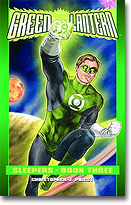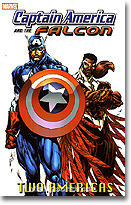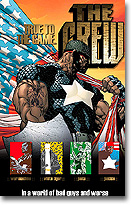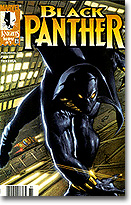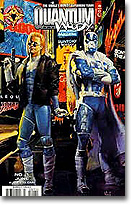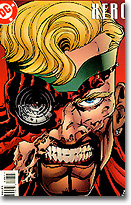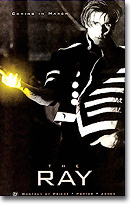Almost Home
Okay, think I’m almost done. I spent almost six weeks re-writing the same chapter and doubting that I ever had any real talent for this in the first place. This is what makes writing so difficult and what makes me so angry when artists and others just assume ‘anyone can do it.’ Well, pal, anyone can’t. I’ve been writing professionally for 28 years, and *I* can’t do it.
As for the violence thing, that’s been largely the problem, me adding in fighting and running and so forth and then reading it and wanting to leap in front of a bus. It just feels so fake. I can see the reader rolling her eyes going, “Oh, please.” Oddly enough, as some have pointed out, here, when I have the bad guys clobber each other, that seems to work. A nifty throat-slitting in a men’s room worked out real nicely, actually, and seemed completely organic to the story.
But, I have otherwise written myself into a fairly impossible situation, where nobody is really motivated to harm our protagonist, so the best we can get are these moments where the reader *expects* Cliché Violent Act #12, but it doesn’t happen. This gets old fairly quickly, so I need to comb through and prune these moments a bit so there aren’t so many of them.
At the end of the day, I personally think we, as a society, have become inundated with violent acts of increasing levels of improbability and silliness in our art forms. So much so, perhaps, that maybe we’re beginning to expect such outrageous stuff in our actual lives. I think the real action of a drama are the human conflicts, not the bar fights. And, if I thought the bar fights worked, I’d have left them in. But, right now, it just feels like, every 50 pages or so, ‘There Priest Goes Again.’
I found it curious that, despite the hype, the film American Gangster really didn’t have all that much Gangster in it. If you step back a bit from the overly-long film, I doubt there are terribly many acts of violence (and only one actual sex scene, although there are several scenes of topless women working in a drug lab). I liked the film (more on that later), but I was watching for the violence. I thought what was there was useful, needed and appropriate, and that Ridley Scott used some restraint in not making any of it too over-the-top. I actually found that to be a comfort, and felt better about the overall ratio of violence to drama I am working with.
The point of which may be moot, anyway, for the complexities of concept, the book being too religious for secular publishers and too secular for religious publishers. I stopped by a Christian bookstore the other day and scanned through some of the stuff on their shelves. Blehh. Bland, watered-down rounded-edges stuff that either makes God seem like a Boogeyman (that Left Behind stuff) or the Quaker Oats guy (the lame historical romance stuff. What’s the point of a historical romance novel without bodice-ripping?!?).
I sincerely doubt that Christian bookstore—or any other—will carry my book, which de-constructs the black church in specific and fundamentalist Christianity in general. I wanted to write about the real world, not some sanitized, fake Falwell-approved version of it. The violence, sex, ruthless backstabbing and cussing in the book will only seem shocking to white Christians, as black Christians experience this every day.
Conversely, I want to talk about faith—real faith—not sanitized, watered-down inoffensive TV faith. Any expression of faith—of any variety—is bound to offend someone. I want to have as honest an examination of faith as is possible within the reasonable limits of a whodunit, and not get chastised by my publisher (as I did in my Green Lantern novel, where my editor was an atheist who continually accused me of trying to proselytize through my manuscript because the Spectre kept talking to and about God. I (and, thankfully, DC) had to continually remind the editor that The Spectre has worked for God for 70 years. It’s always been God. I told him, far from my forcing my beliefs on people via this book, this editor was forcing *his* atheism on people by demanding we never refer to The Spectre’s boss as “God.” So, we simply called him “The Boss.” Then he complained about the capitalization, but DC backed my play).
Politics and religion are tricky subjects to work into novels, I suppose. Religion most especially, unless you are undermining or debunking something a la The Da Vinci Code. Appeals to real faith will likely offend someone, so I can imagine secular publishers not being terribly interested. But, from what I saw the other day, Christian publishers are far worse. The homogenized mush I browsed through yesterday really alarmed me, that Christian publishers (or, perhaps more accurately, Christian retailers) shy away from anything with real edge to it. It’s all Pat Boone down there, this brainwashed pap. It’s almost as if Christians—and, I suppose I’m mostly talking about white Christians—are afraid of most anything that challenges their beliefs, even if the one challenging it is a believer as well. I figure, anything you believe in ought to be able to stand a bit of scrutiny. Your truth shouldn’t have to go into hiding or resort to censorship in order to be true. It ought to be sturdy enough to withstand someone occasionally kicking the tires.
I had fun working on this. I’d like to create a whole sub-genre of fiction designed to make Christians lose their bullshit fake-faith, and replace it with something purer. That’s what this work challenges the reader to do. A shame I doubt anyone will ever publish it.

